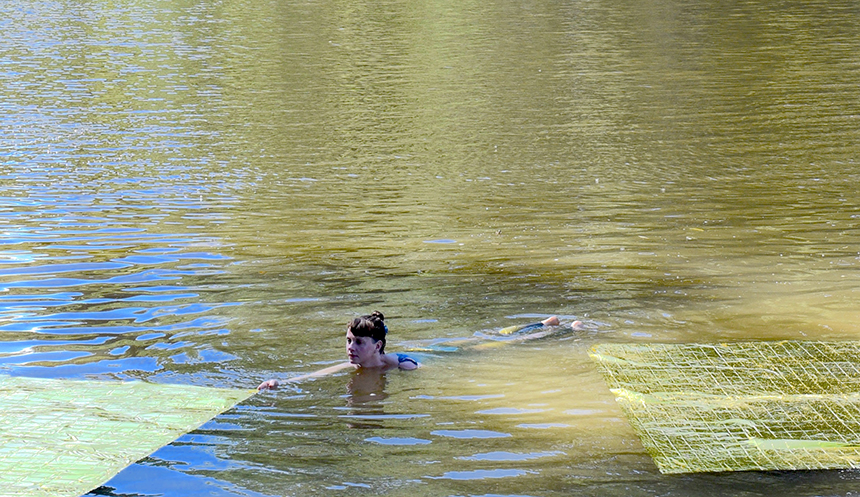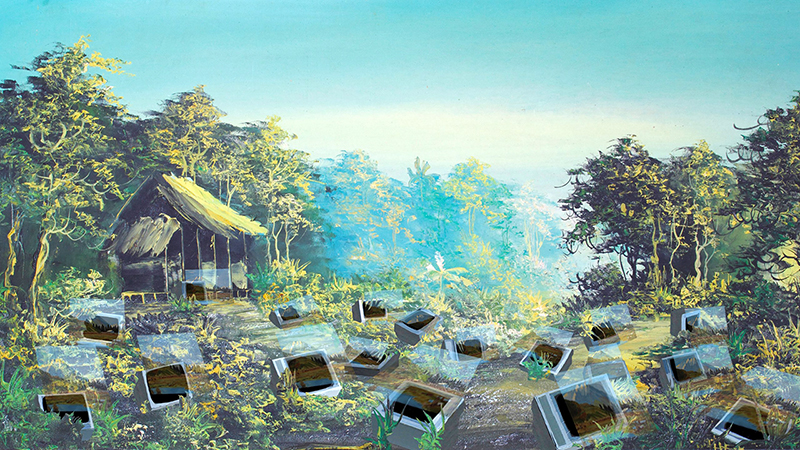Still Water Goes Stagnant
Brydee Rood, River Survival Series: Whanganui River Gold Waters, 2016, performance/video installation
Still Water Goes Stagnant
7 May – 31 July 2016
Still water is dangerous. It renders life-giving water toxic as it conceals and cultivates manifold diseases. The duality of this existence – an element that is at the same time essential to human life and a potential threat – is the central theme of the exhibition Still Water Goes Stagnant.
Examining the divergent states of landscape, documentation, connectivity, and simulacra, the exhibition includes new video work by New Zealand artists Kate Woods and Brydee Rood alongside the Indonesian collective Tromarama. It is not a coincidence that each of the artists lives or has spent significant time in Asia. The flow of people, art, and discourse between Asia and the Pacific is becoming increasingly vital to contemporary New Zealand art and these connections are investigated and assessed in each of the works displayed in Still Water Goes Stagnant.
Brydee Rood, an Auckland based performance artist, floated with survival blankets on the Whanganui River in February of 2016. The resulting installation, which is accompanied by photographs from her survival performance in India, speaks to the state of emergency faced by many rivers across the world and our role as poisoners and potential saviours.
Using Nam June Paik’s seminal 1974 work TV Garden as her inspiration Kate Woods’ Carryback, Carryover is ancient and modern, referential and original, eternal and ephemeral. Using samples from found visual and audio media the work flickers and pulses with mystery and memory.
Intercourse by Tromarama captures the viewer between two worlds. Trapped by both the physical and digital the work questions the nature of the real, surreal, and hyper-real state of contemporary life. This is the first time Tromarama has shown in New Zealand and the Sarjeant Gallery Te Whare o Rehua Whanganui is delighted to be bringing their exciting work to Whanganui.
Sarah McClintock
Assistant Curator
Date
18 June - 11 September 2016



